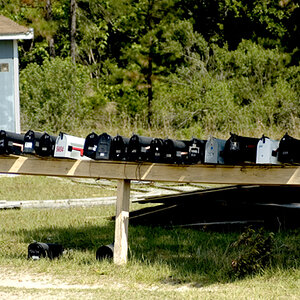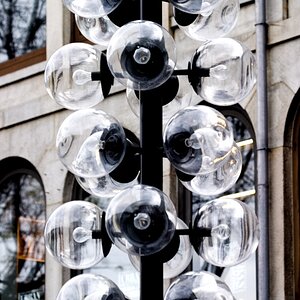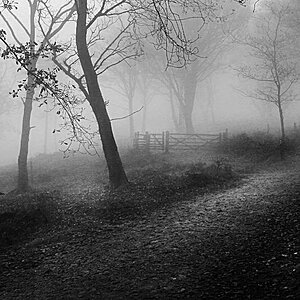bennielou
TPF Noob!
- Joined
- Nov 27, 2009
- Messages
- 1,798
- Reaction score
- 172
- Location
- Dallas, TX
- Can others edit my Photos
- Photos OK to edit
OK, let me ask you this for the sake of this discussion (I don't want to discuss the photo as such in detail, it isn't "art"! I know it. It isn't even good) - is this photo "an abuse of Photoshop"?
I'm asking because - while this photo was very (!) spur of the moment, taken out of the side window of a passing bus, and my intention was to capture the solitude of the countryside we were going through in Turkey, and the fact that not all had the comfort of travelling in a nice bus, but some had to walk - the man originally was walking right underneath that tree. That, however, felt so unbalanced to me for this photo that (for the first time ever in my life, I must admit) I decided to cut him out of where he actually was and put him to where you can now see him.
And upon looking closer, I did not even clone the part where he once was well enough, it shows... Not good! But none of that is the point I want to discuss here.
My question is: Is this abuse in your eyes?
I think it's an abuse if you want to call it that. I say so because you didn't really capture what you "saw". I doubt if you enter such a picture into a contest, that it would be allowed. Now of course, you could set it up in such a manner that the man was actually walking by the road....
As to the OP, I guess, the only comment I have is for the newbies to get as much correct in camera as they can. I see no joy in spending countless hours in front of a computer when you could use those times to practice photography skills.
It's art. You can make it whatever the hell you want. As long as the clients buy it, who cares? Have you seen Yervont lately? He has gone off in a big Draconian tangent. Is it great? Absolutely. Do his clients pay him craploads of money to do what he does. Um yep.


 if the point was not to tell a story, then why bother moving the person?
if the point was not to tell a story, then why bother moving the person?

![[No title]](/data/xfmg/thumbnail/37/37606-3c9ffb5906173fa2aa489341967e1468.jpg?1619738148)





![[No title]](/data/xfmg/thumbnail/37/37604-7ad625e983f92f880eb65a264eeef5e4.jpg?1619738148)



